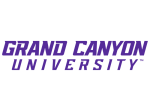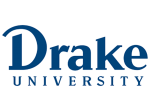 If you’re thinking of earning an online business degree, you’re not alone. Business has historically enjoyed the #1 spot as the most popular distance degree. This field also has the most lucrative major in terms of starting salaries. Business majors with bachelor degrees can pull in about $45,000 in starter jobs, compared to liberal arts majors, who earn on average about $35,000. Mid-level managers who earn business degrees at the master’s level can break $100,000 in annual salary.
If you’re thinking of earning an online business degree, you’re not alone. Business has historically enjoyed the #1 spot as the most popular distance degree. This field also has the most lucrative major in terms of starting salaries. Business majors with bachelor degrees can pull in about $45,000 in starter jobs, compared to liberal arts majors, who earn on average about $35,000. Mid-level managers who earn business degrees at the master’s level can break $100,000 in annual salary.
Do your homework before you enroll in a business degree online. Not all careers in business involve sitting behind a desk, and in fact, business careers require professionals to be flexible and well-versed to think critically in an ever-evolving environment. All industries that are not businesses still require the knowledge that is applied through the business professions. Consider both salary levels and personal values in selecting the right business degree programs for your personal needs.
THE CAREER PATH
Working professionals can use business degrees to advance their existing career and pursue management positions; young professionals can use their skills to start their own business, or to move quickly up the ranks after lining up an internship with their degree. Business professionals bring a unique understanding of organizational behavior, financial management, communications, marketing, and human relations to organizations that allow them to identify and work towards accomplishing their goals. Business professionals may choose to focus their careers in a particular aspect of business, such as finances or public relations, or they may choose to earn a degree that offers a broad overview of business techniques that are specific to certain industries, such as nonprofit management or international business.
For most positions, applicants would be competitive with a bachelor’s degree in their respective field. Managerial positions tend to demand lengthy work experience, and occasionally higher education beyond the bachelor’s. Applicants can increase their competitiveness by validating their skills with relevant certifications. Certifications can attest to the competency of professionals who work with finance, human resources, project management, and many other unique aspects of business careers. Certification programs can be offered through universities — online, or in conjunction with an existing degree program — as well as bodies like the Project Management Institute (PMI), the Association for Financial Professionals (AFP), and the American Institute for Business Management and Communication (AIBMC).
WHO IS THE IDEAL CANDIDATE?
One of the appealing characteristics of careers in business is that they can be shaped to suit the strengths, needs, goals, and lifestyle of professionals. Of course, all professionals in business are typically required to think critically and analytically; many positions also require an adept understanding of math in addition to strong organizational and communication skills. Beyond those qualities, a degree in business can be tailored to the unique strengths and interests of individual applications.
Professionals who are passionate about international business, for example, will be able to shape their career to study more aspects of global economic trends and diverse commercial markets. Some professionals choose to combine their career and their hobby by studying sports management. No matter what your background or your vision for the future, there is certain to be some career under this broad umbrella for you.
BEST BUSINESS JOBS
There are many different types of jobs that fall under the category of business, and all of them are uniquely rewarding. Here are some examples of the diverse types of careers in business:
- HUMAN RESOURCES — Human resources (HR) is often described as the administrative backbone of a business or organization. It covers all of the aspects of a business that allow it to be sustainable: anything related to the integrity of an organization or the human interactions. Professionals in this line of work often start out as HR specialists and may eventually earn a promotion to become HR management. The demand for qualified HR professionals is expected to increase by 5-10% in the coming years, which is more than the national average. The wages also compare well to other occupations. Although they may fluctuate between organizations of various sizes, they usually fall between $50,000 to $100,000 on average.
- MARKETING — Marketing professionals often focus their careers on the art of the deal. They study the demand of products and services so that they can create more efficient and profitable supply on behalf of their organizations. They may apply their skills as sales representatives, connecting directly with clients to help identify products and services that meet their needs, or as marketing specialists who identify opportunities for market expansion and work with sales, PR, and development staff to create promotional strategies. Careers in marketing may be worth consideration, since they are expected to grow at a faster rate than the national average in the coming years, and they make between $60,000 and $100,000 on average each year.
- FINANCE — Most finance professionals embody the stereotypical image of Wall Street business. They are the number-crunching math whizzes who make it possible for businesses to form financial strategies that allow them to succeed in a capitalist economy. Finance professionals may choose to apply their skills to provide guidance on investment opportunities as financial analysts. Other professionals might rather apply their skills within organizations to develop long-term strategic plans to maintain financial health as financial managers. Numbers are what allow businesses to function, and so these number crunching professionals are expected to be in steadily high demand for the years to come, and to make an income between $80,000 and $120,000 annually.
WHAT SHOULD I LOOK FOR?
Business degree programs are designed to introduce students to the various concepts of business strategy and core themes such as public relations, operations, and management. Regardless of what type of program is being sought, it is suggested that prospective students pay attention to the courses offered and whether or not they appropriately prepare the student for his or her personal professional goals.
In addition to checking for coursework when choosing a program that is relevant to your professional ambitions and interests, it is always beneficial to check the credentials of an institution. Programmatic accreditation, like that from the Association to Advance Collegiate Schools of Business (AACSB), may add more prestige to your degree but can also increase tuition cost.
COST
An online bachelor’s in business costs about $50,000, on average, in the United States. However, the most affordable degrees will be under $20,000. GetEducated researches all fees involved with each online degree so the total cost you see in a profile includes all technology and online learning fees. Programs offer different types of opportunities for students as well, such as internships that can increase work experience. These are all factors to take into consideration when weighing your options.






















